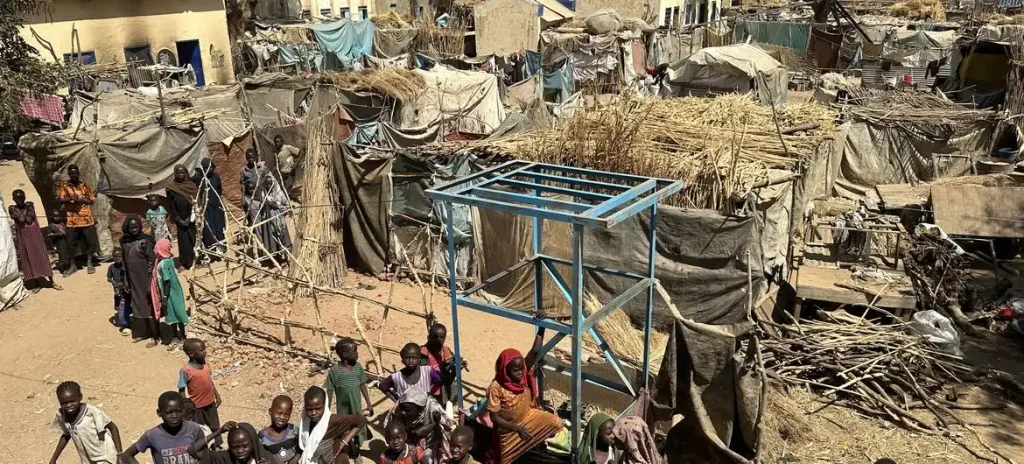After years of restricted access, international reporters have finally stepped into Darfur, Sudan’s war-torn western region, to document a humanitarian disaster unfolding in silence.
Hundreds of thousands of civilians, driven from their homes by fierce fighting between government troops and rapid support forces, now huddle in overpacked camps battling starvation, illness, and deep trauma.
Large swaths of the area fall under paramilitary control, with entire towns left deserted and destroyed. One of the few safe zones, Tawila, has become a refuge for over 570,000 people — more than the population of a major European city. Many arrived recently, fleeing intense violence in nearby El Fasher, just 60 kilometers away.
Survivors Share Harrowing Escapes
Fatima Mohamed Umar is among the newest arrivals. She fled El Fasher with her daughter and grandchildren only days ago.
“Explosions shook the ground. Shells rained down everywhere,” she said, voice trembling. “We ran with nothing.”
Like most in Tawila, her family depends on scarce food distributions and limited water supplies. Aid trucks face long delays on dangerous roads, leaving residents to stretch meager rations.
Cholera and Malnutrition Claim Young Lives
Medical teams on the ground report a severe cholera outbreak sweeping through the camps. Dr. Nazir Mouhajr Abdallah, working with a health organization, described dire conditions:
“Young children suffer the most. When cholera strikes alongside malnutrition or malaria, the outcome is often fatal.”
Under-fives face the highest risk, with overcrowding and poor sanitation accelerating disease spread. Clean water remains a luxury, and treatment centers struggle with limited supplies.
Invisible Wounds: Trauma Beyond Physical Harm
The crisis extends far past physical illness. Faiza Abdalla, a mental health counselor and displaced person herself, supports women enduring unspeakable violence.
“Many come seeking help in secret,” she shared. “Others stay hidden, too afraid to speak.”
Paramilitary attacks have left survivors with profound psychological scars, including assault and loss. Counseling sessions offer rare spaces for healing, but demand far outstrips resources.
Accusations of Atrocities on Both Sides
A United Nations investigation recently concluded that both warring factions have deliberately targeted civilians. The report documents war crimes by government forces and crimes against humanity by paramilitaries, including widespread killings, sexual violence, and destruction of communities.
A Region in Collapse
Darfur’s crisis reflects Sudan’s broader collapse into conflict. With paramilitaries dominating rural areas and urban centers under siege, displacement continues unabated. Aid access remains severely restricted, leaving millions dependent on inconsistent humanitarian support.
The rare glimpse provided by journalists underscores a grim reality: Darfur’s suffering has been shielded from the world for too long. As camps overflow and diseases rage, the urgent need for security, aid, and accountability grows louder.
What can be done to help Darfur’s displaced? Share your thoughts below.
RELATED NEWS: Rodgers Quits Celtic Amid Board Clash























